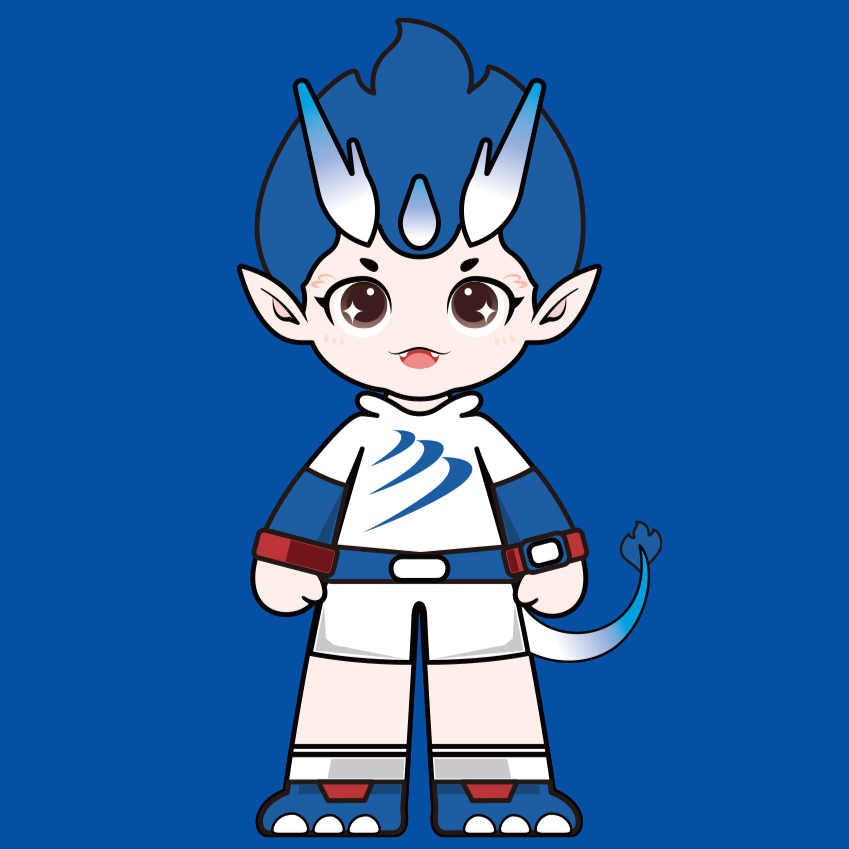
英语中一共有16种时态, 分别是哪些?
1. 一般现在时
用法:
A) 表示现在发生的动作、情况、状态和特征.
B) 习惯用语.
C) 经常性、习惯性动作.
例:He always helps others. (他总是帮助别人.)
D) 客观事实和普遍真理.尤其要注意,如果前后文不是一般现在时,则无法保持 主句、从句时态一致.
E) 表示一个按规定、计划或安排要发生的动作,(仅限于某些表示“来、去、动 、停、开始、结束、继续”等的动词 )可以与表示未来时间的状语搭配使用 .常见的用法是:飞机、火车、轮船、汽车等定期定点运行的交通方式.
例:The next train leaves at 3 o'clock this afternoon.
(下一趟火车今天下午3点开车.)
2. 现在进行时(be doing)
用法:现在正在进行的动作.she is dancing.
3. 现在完成时(have done)
用法:
A) 表示动作到现在为止已经完成或刚刚完成.
B) 表示从过去某时刻开始,持续到现在的动作或情况,并且有可能会继续延续下去.此时经常用延续性动词.时间状语常用since加一个过去的时间点,或for加一段时间,或by加一个现在时间.
Great as Newton was, many of his ideas have been challenged today and are being modified by the work of scientists of our time.
C) 表示发生在过去,但对现在仍有影响的动作或情况.通常用点动词,如:arrive, begin, find, give, lose等.
例:John has broken his left leg.(约翰摔断了左腿.)
4. 现在完成进行时(have been doing)
用法:表示某一动作开始于过去某一时间,延续或重复地出现至今,或将继续延续至将来.
例:We have been working on this project for over a month now.(到目前为止,我们一直在处理那个项目,已经花了一个多月时间了.)
5. 一般过去时
用法:
A) 表示过去某个时间发生的动作或情况.
B) 表示过去习惯性动作.特别是由would/ used to do表达的句型,本身表示的 就是过去时.
例
He used to visit his mother once a week.(他以前总是每周看望一次他的母亲.)
C) 有时可代替一般现在时,表达一种婉转、客气、礼貌、商量的语气.
例:I wanted to ask you if I could borrow your car?(我想向您借车用一用,可以吗?)
Would you mind my sitting here?(您介意我坐在这里吗?)
6. 过去完成时(had done)
用法:表示在过去的某个时间或动作以前已经发生的动作或已经存在的状态.就是我们常说的:表示"过去的过去的动作或状态".
例:There had been some one in our room just now, because I noticed a burning cigarette end on the floor when we opened the front door.(刚才有人在我们的房间里,因为我们打开前门进来时,我注意到地板上有一支仍在燃烧的香烟.)
7. 过去将来时(would/ should do)
用法:表示从过去的某个时间看将要发生的事.
例:I said on Thursday I should see my friend the next day.(我星期四说我将于第二天拜访我的朋友.)
8. 过去进行时(was/ were doing)
用法:
A) 表示在过去一个比较具体的时间正在发生的动作.
例:Mary was listening to light music 10 minutes ago.(10分钟前,玛丽正在听轻音乐.)
B) 如果when, while这样的时间状语引导词所引导的主从句之一是一般过去时,则另一个句子常用过去进行时.
例:I was washing my hair when you knocked at the front door.(你敲前门时我正在洗头发.)
9. 一般将来时
用法:
A) 基本结构是will / shall do.
例:We shall send her a glass hand-made craft as her birthday gift.(我们将送给她一个玻璃的手工制品,作为给她的生日礼物.)
B) 有些动词,如:arrive, be close, come, do, done, go, have, leave, open, play, return, sleep, start, stay等,用于一般进行时,并且通常与一个表示将来时间的时间状语连用,可以表示将来时.
例:My mother is coming to visit me next week and is staying here until May.(我妈妈下周将来看我,并会呆到5月.
10. 将来进行时(will be doing)
用法:强调在将来的某个具体时间正在发生的动作或事情.
例:Don't worry, you won't miss her. She will be wearing a red T-shirt and a white skirt at that time.(别担心,你不会认不出她的.她到时会穿一件红色的T恤衫和一条白色的短裙.)
注意事项:由于本时态是由将来时和进行时融合在一起的,所以关于本时态的注意事项,可参考"一般将来时"和"现在进行时"的有关注意事项.
11. 将来完成时(will have done)
用法:表示从将来的某一时间开始、延续到另一个将来时间的动作或状态,或是发生在某个将来时间,但对其后的另一个将来时间有影响的动作或状态.就好象把现在完成时平移到时间轴的将来时时段一样.其用法从和过去及现在有关,变成了和将来及将来的将来有关.
12)将来完成进行时:shall have been doing ,will have been doing
例:By the end of next month, the project will have been being worked for 3 years. (到下个月底为止,这项工程就已经不停地进行了3年了.)(被动语态)
13)过去完成进行时:had been doing
例:The old clock had been being taken apart of and fixed up again for several times by my 10-year old son before I came back home.(我回到家之前,我10岁大的儿子已经把这个旧钟表拆卸并重新组装了好几回了.)(此处强调“拆卸”和“组装”这两个过去的过去的动作一直在反复进行.)(被动语态)
14) 过去将来进行时:should be doing , would be doing
例:The government promised that a new highway would be being built next July.(政府承诺说第二年7月将有一条新的高速公路正在修建.)(此句的时间状语是具体的将来时间,所以最好用将来进行时.)(此句为被动语态)
15) 过去将来完成时:should have done , would have done
例:I believed by the end of that year an advanced version of that software would have been developed, but I was wrong.(我坚信到那年年底为止,那个软件的新版本将被开发出来.但是我错了.)(此句为被动语态)
16) 过去将来完成进行时:should have been doing , would have been doing
例:They said that by the end of the following month, the project would have been being worked for 3 years. (他们说到第二个月底为止,这项工程就已经不停地进行了3年了.)
2023-11-26 · 百度认证:云南新华电脑职业培训学校官方账号
 云南新华电脑学校
云南新华电脑学校

参照上表,由第1列至第4列(竖着看)对应的16种时态分别是:
1. 一般现在时,例句: We have six classes every day. 我们每天上六节课。
2. 现在进行时,例句:I am playing computer games now.我正在打电脑游戏。
3. 现在完成时,例句:She has been to New York twice. 她已经去过纽约两次。
4. 现在完成进行时,例句:He has been teaching math for 10 years.他已经教数学10年了。
5. 一般过去时,例句:I bought 2 comic books yesterday.昨天我买了2本漫画书。
6. 过去进行时,例句:We were playing basketball at 6 p.m. yesterday. 昨天下午6点我们正在打篮球。
7. 过去完成时,例句:The train had already left by the time I got to the station.在我到达车站前,火车就已经离开了。
8. 过去完成进行时,例句:At last he got the offer from the university he had been expecting.他终于收到了期盼已久的大学录取通知书。
9. 一般将来时,例句:I will go to Kunming tomorrow.我明天将会去昆明。
10. 将来进行时,例句:I will be doing my homework this time tomorrow.
明天的这个时候我正在做作业。
11. 将来完成时,例句:By this time next year, I will have graduated from the university. 到明年这个时候,我已经从大学毕业了。
12. 将来完成进行时,例句:By the time the sun rises, I shall have been sleeping for nine hours.太阳升起来之前,我已经睡了9个小时了。
13. 过去将来时,例句:I knew that she would be late.我知道她会迟到。
14. 过去将来进行时,例句:They said they would be coming.他们说了他们将要来。
15. 过去将来完成时(较少使用),例句:He said he would have paid me back the money by the end of the weekend. 他说将在周末前还我钱。
16. 过去将来完成进行时(很少使用)【表示动作从过去某一时间开始一直延续到过去将来某一时间。】,例句:He said that by the end of the spring term he would have been studying English for three years. 他说到了春季学期末,他就学了三年英语了。


